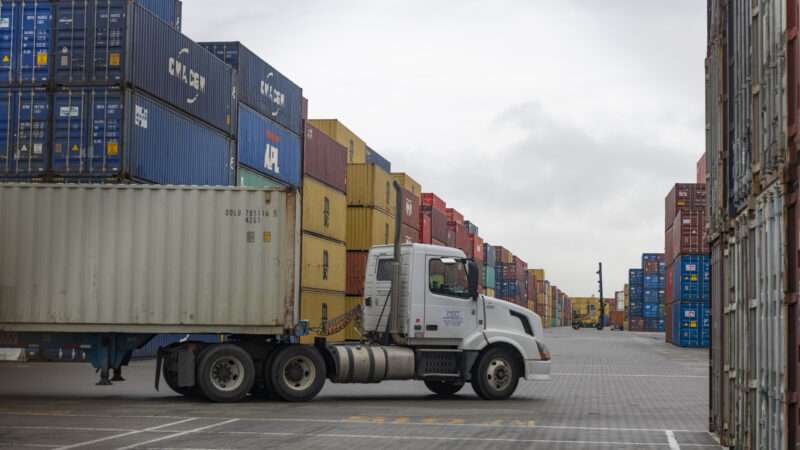
When the Trump administration implemented tariffs on Chinese chemical companies in 2018, administration officials said tariffs would make American chemical companies more competitive. But industry groups told regulators last week that it's had the opposite effect.
At a Thursday hearing on the impact of the Trump administration's tariffs against China, the American Chemistry Council (ACC), an industry group representing over 190 U.S. chemical companies, informed the International Trade Commission that imports of Chinese chemical products have instead grown continuously since the tariffs took effect in June 2018. Over $35 billion worth of chemicals were imported from China in 2021, and Chinese companies now make up a larger share of U.S. chemical imports than they did when former President Donald Trump took office in 2017.
Per the ACC, the Trump administration failed to account for American manufacturers' reliance on intermediate products exclusively produced in China. "China is the primary source of many valuable inputs to U.S. chemical manufacturing processes, and for which few or no alternatives exist," an ACC representative said. "It would take years, and billions of dollars, to build manufacturing capabilities for these inputs in the United States or other countries."
Dyes stand out as some of the most notable examples of vital Chinese imports impacted by chemical tariffs. For U.S. manufacturers to produce Red 57, a red pigment commonly found in many cosmetic products, they must import 3-hydroxy-2-naphthoic acid, also known as BONA, from China. BONA is exclusively produced in China, forcing American manufacturers to bear the higher costs associated with importing these critical Chinese-made inputs for their final products.
The chemicals industry is among the most impacted by duties, with companies paying out $8.5 billion in tariffs since 2018, according to the ACC testimony. These added costs have ultimately been passed along to consumers, driving up the prices of final products in a variety of sectors, including pharmaceuticals, construction, and electronics. In the ACC's view, these higher costs are hindering American businesses as they struggle to compete against European and Asian chemical companies, limiting their ability to innovate, expand, and compete for foreign direct investment.
The chemicals industry is a vital sector of the U.S. economy, employing over 500,000 workers and producing 9 percent of the country's total annual exports, the ACC testimony states. The chemicals industry also sports well-paid jobs relative to other domestic manufacturing industries. Not to mention many of the intermediate components necessary for defense production, information technology, transportation, and agriculture are produced by American chemical companies, making the chemicals industry a key, if often overlooked, player in the supply chain.
Previous administrations have recognized the importance of the chemicals sector as they have shaped economic and national security policy. Back in 2013, the Obama administration named the chemicals sector as one of sixteen "critical infrastructure sectors" with direct impacts on national security and public safety. Meanwhile, the Biden administration included the industry and many of the final products it contributes to in a major executive order in February 2021 on U.S. supply chains. Among the products the Biden administration highlighted were semiconductors, high-capacity batteries, and critical minerals.
Continued tariffs have run counter to these public overtures and policy pronouncements. Despite the attention given to the industry by the federal government in recent years, chemical companies are warning that tariffs are hurting their ability to invest new capital in their supply chains and innovate on issues like climate change. They also worry that it will slow job growth and hinder the Biden administration's broader efforts toward restoring resilience in the supply chain while only contributing to higher costs for consumers.
"[T]ariffs are clearly not working for the chemicals and plastics sector," the ACC said in their testimony. "[They] are making the United States a less attractive place for jobs, innovation, and plant expansion."
The post How Trump's Tariffs on Chinese Chemical Products Backfired appeared first on Reason.com.







